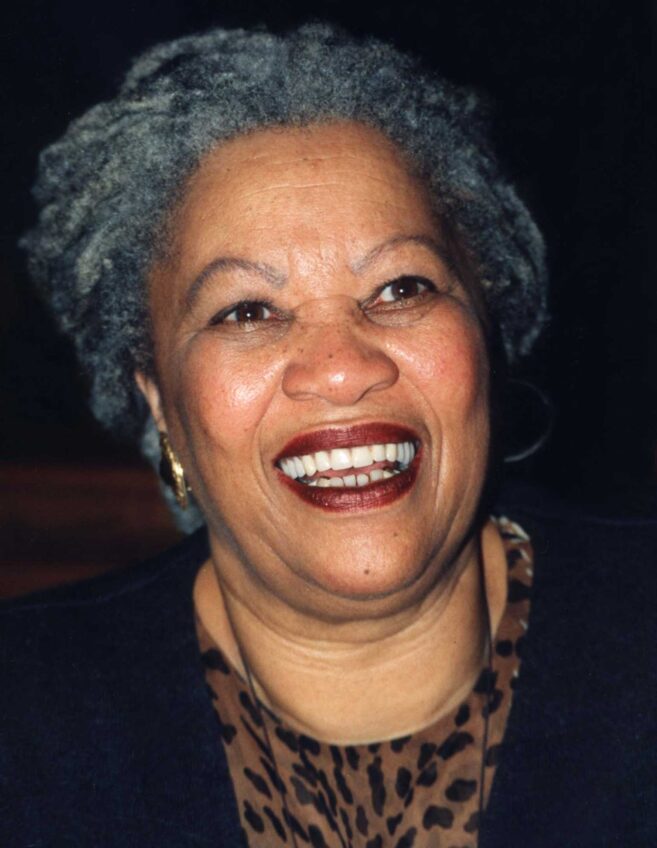My name is Fedrick Ingram, and I am from the future.
Not the distant future — the future that starts on January 20 when Donald Trump returns to the White House, bringing with him the promise of dangerous, retrograde ideas about education, immigration, and even democracy itself.
The dystopian future that Trump is building for this country is one I have already seen. Born and raised in Florida, I’ve lived, worked, and fought in a state that has become a laboratory for MAGA experiments in extremist education policies and prohibitions. What works here, they assume, will work everywhere. To an extent, they are correct — we all live in Florida now.
Since his re-election, Trump has amassed more power and converts to his insane vision and, at least until the midterms, he has essentially unchecked power to carry out that vision. However, I can tell you, he’s going to have to fight for every inch because I have seen what it takes to not just push back, but what it takes to win against extremist policies in our schools and colleges.
But I’m here to sow hope, not fear. And to that end, I want to share three words that are key to the fight ahead of you: organize, organize, organize.
This is not just a lesson I have learned from my time in education and labor, but by being a Black man in America who has the sense to listen to his elders and understands my success is the fruit of those who met, often in secret, to strategize a way to freedom. They saw an obstacle, they created community, and they made a plan.
In Florida, one of the biggest obstacles to success and freedom for our students is the most fundamental: reading. Case in point: last November, the Florida Department of Education released a list of 700 books that have been “removed or discontinued” in public schools — making my home state the leader in banning books. Caught in the ban are stories about our history, stories by luminaries like Alice Walker and Toni Morrison to relative newcomers like Angie Thomas and Ibram X. Kendi.
And it’s not just books Florida objects to. It’s history itself. When the country’s first AP course on Black Studies debuted, Governor Ron DeSantis rejected it for “indoctrination.”
He took issue with the course, citing movements like Black Lives Matter or “intersectionality” as lacking in educational value. His now barely breathing “STOP WOKE” act wanted to remove any mention of systemic racism, sexism, or bigotry in order to present a sanitized vision of America that has never existed.
This is not a new fight for Black folks who knew books and even the knowledge of books to be precious contraband in an antagonistic country. And so, we are doing what we have always done to fight back — we organize. I can speak personally about joining the NAACP to launch a Freedom Library in Tampa and helping furnish it with thousands of books filled with our history, our faces, and our stories.
But I was not alone.
Thanks to community and church leaders, some Florida students are setting aside their weekends to gather at the Spady Cultural Heritage Museum in Delray Beach to fill in the history and story gaps left open by DeSantis’ extremist policies. While I am speaking from the future, sometimes the key to fighting comes from our collective past.
I am seeing this return to organizing in other future-tested areas like Texas, which has also prioritized book banning and curricular censorship. Educators in the state who were committed to academic freedom didn’t just stand by wringing their hands. Instead, they joined hands to create 12 new chapters of the American Association of University Professors.
In a time when unions are in the sights of Trump and his cronies, folks in states impacted the most by extremist policies doubled down on organizing. That’s because creating a responsive and responsible community is the best way to address the needs of your neighbors, friends, and family. The only way through the next four years is together, and if you plan on succeeding, then you must also plan on organizing the voices and the hands that have the most at stake.
The future is ours to win, but we must begin today.
Fedrick C. Ingram is the Secretary-Treasurer of the American Federation of Teachers, serving 1.8 million members, including pre-K through 12th-grade teachers; school and college support staff; higher education faculty; federal, state and local government employees; and nurses and other healthcare professionals. Ingram is the immediate past president of the 140,000-member Florida Education Association. He also has served as an elected vice president of the AFT’s executive council.






